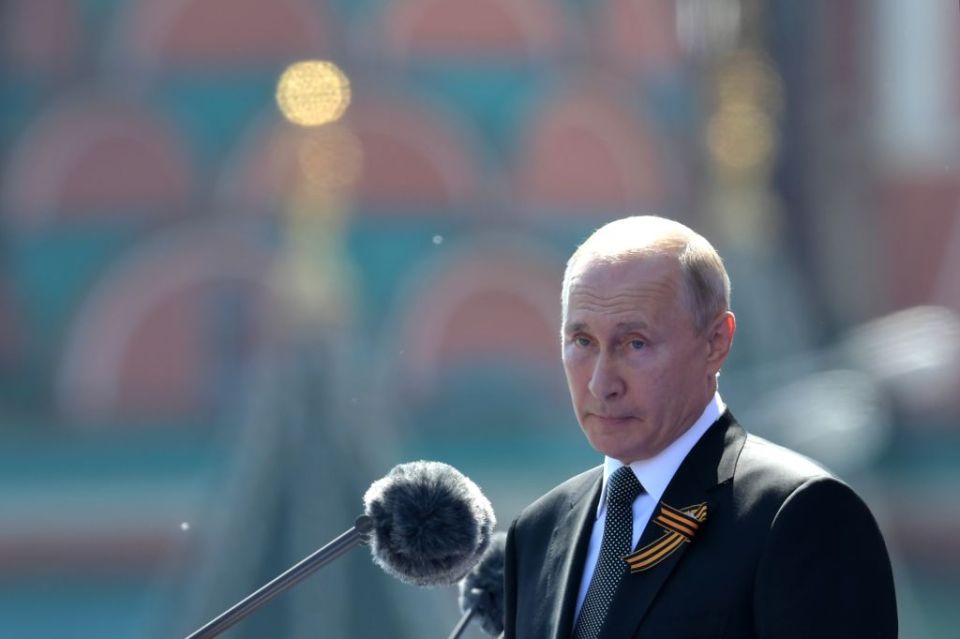Even if Putin is ousted, it is unlikely to bring about the end of the war in Ukraine

The Prigozhin mutiny over the weekend showed a weakened Vladimir Putin, yet it’s unlikely to change the course of the war in Ukraine – which has long turned into a stalemate, writes John Hulsman
It is always laughably easier to describe the reasons for something happening after it is over, rather than seeing what will happen in real time amidst the chaos. And the war in Ukraine has taught us this lesson over and over again. After the initial invasion, there was a din of voices claiming to have always foreseen the eventual sequence of events.
This past weekend’s shocking Wagner mutiny has proved another case in point. Amidst the fog of war, it is entirely unclear what will happen next. Pretending otherwise or simply providing a re-run of events does a disservice to those hankering for useful analysis. As much as we will it to be different, the quickly wound-back threat of civil war in Russia changed little of the reality of the conflict in Ukraine.
Let’s start with the fact that the war has long since ground down into a stalemate. The Russian offensive of the spring resembled nothing so much as the charnel house of World War I, with hundreds dying for negligible gains in territory. The Ukrainian town of Bakhmut, a city of little strategic importance, became the Verdun of this new war, with the ferocity of fighting over mere metres of territory far outstretching the relevance of the place. The Russian offensive petered out to no strategic effect and the stalemate that characterizes the whole conflict was not altered.
Even in light of the Prigozhin mutiny of the weekend, there is little evidence the present stagnant Ukrainian effort will be able to take advantage of Russian political chaos. Up until now, as the frank admission of President Zelensky makes clear, the summer Ukrainian offensive has gotten off to a slow start. Despite local tactical gains being made, it is also unlikely to upend the general strategic stalemate.
Given that this is the case, only outside drivers will materially affect the result. This has remained unchanged since the Wagner mutiny. Either American support for Ukraine, estimated at a whopping $110bn and counting, could wane as the huge outlay of weapons and money fail to bring victory. Or, Russian public opinion could tire of a war that everyone thought Putin would win in a matter of weeks. If further reservist troops are called up to man Russia’s war or worse, a general draft is called for, Russian public opinion could darken quickly, with Putin himself being blamed for the debacle. It would be open season on the Russian president. This was true before the Wagner mutiny and remains the case now.
If Russian public and elite opinion wobbles over the war, and Putin is actually ousted, the victor is unlikely to be a darling of the Western NGO community. As the thug Prigozhin illustrates (this is a man who enjoyed filming his troops taking a sledgehammer to the head of a deserter), the new tsar would be likely to come from Russia’s siloviki class, the hard men around Putin who run the military, intelligence and power ministries. They would be against Putin because he was prosecuting the war badly, not because he was prosecuting the war at all. A successor would not be good news either for Kyiv or the West.
Ultimately, the West has almost no say in the outcome of any future Russian power struggle. To meddle would likely only make Russian paranoia even worse. Instead, the West must stick to its red lines over the war: Use of Russian nuclear weapons will be treated as an abomination; China must be leveraged into pressing its client Russia to the negotiating table in time; the West must also corral the maximalist hopes of Zelensky and company, as a settled conflict is in our interests.
This is because it remains overwhelmingly likely that neither side will decisively and unconditionally win the present war. As this remains the case, a negotiated settlement—as emotionally unsatisfactory as that is—remains the only viable way to end the conflict. These are hard political truths. Now is not the time for wishful thinking.